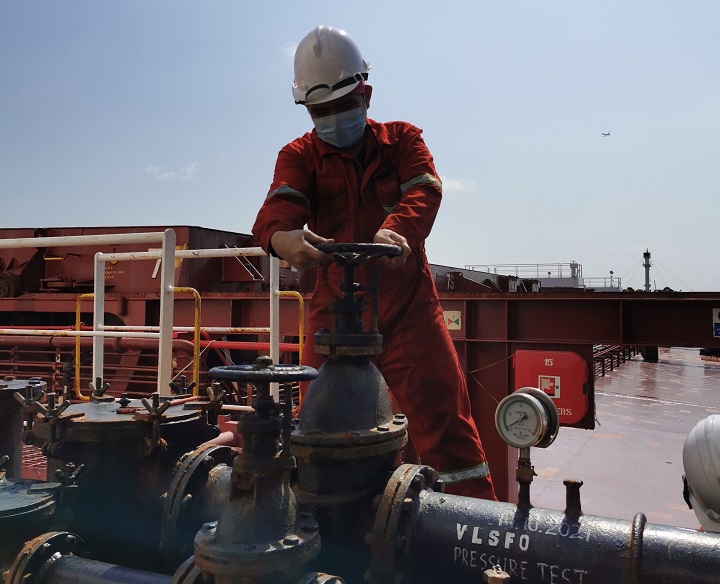
Wilhelmsen Ship Management (Wilhelmsen), the global leader in maritime recruitment and fleet management, is expanding its pool of Filipino seafarers amid plans to transition to low-emission operation and digitalization.
Decarbonization and digitalization are key global trends that have prompted the maritime industry to shift gears in recent years. The International Maritime Organization (IMO) has decided to reduce GreenHouse Gas emissions, with a goal of reducing emissions by 50 percent in 2050. In line with this ambition, the shipping industry will soon transition its fleet towards low or zero-emission fuels. In parallel, the digitalization evolution that took over shipping will continue to intensify and will increasingly play an important role in monitoring emissions.
The same trends have shaped the trajectory of future recruitment demands in the next decade. In the very near future, ships will be built operating on a variety of low or zero-emission fuels such as liquified natural gas (LNG), methanol, ammonia, and hydrogen. It would be a different landscape from what we have today which is one type of fuel oil. These new fuels are different from the current ones and require skills and expertise to ensure safe bunkering and operability of new engine types. Digitalization has become all the more important for monitoring emissions. The ability to interpret data into actions is one key skill that is in demand. Seafarers are required to analyze data on dashboards and make use of this information to operate ships efficiently.
To meet the future demands of the competent crew in operating future ships, Wilhelmsen will be utilizing its training facilities and elearning platform to upskill their seafarers. The ship manager has an ambitious growth plan to grow its fleet by 60 percent in the next five years and will be increasing its pool of Filipino seafarers to support its growth.
“The Philippines remains one of the world’s largest suppliers of seafarers. For 43 years, the country has been a major recruitment pool of highly skilled seafarers for Wilhelmsen. In fact, almost 50 percent of our crew today are Filipinos. In addition to expanding our pool of seafarers, we are determined to equip our local recruits with technical and soft skills competence that is required to operate future ships safely and efficiently,” said Anette Bjerke Hoey, Wilhelmsen Ship Management Vice President for Marine Personnel.
Wilhelmsen has increased the use of Filipino seafarers by 15 percent and their cadet program has increased its intake of Filipino seafarers by 194 percent in the last 5 years. 40 percent of its current pool are officer ranks and approximately 2 percent are female officers. The progressive growth in the Filipino seafarer pool is driven by the long term plans to maintain the Philippines as one of its major recruitment hubs to meet the needs of its expanding fleet in ship management.
“Career progression is one area that we are focused on. We have made good progress in developing our Filipino officers to gain experience in highly complex vessel segments like LPG, LNG and cruise. This added vessel segment experience adds significant value in their career growth ahead,” added Hoey.
Wilhelmsen is an accredited and Maritime Labor Conventions (MCL) compliant company. The ship manager currently manages 250 ships in technical management and 212 ships in crew management. The ship segment in management includes gas tankers, oil tankers, bulker, container, offshore, cruise, and car carrier.

